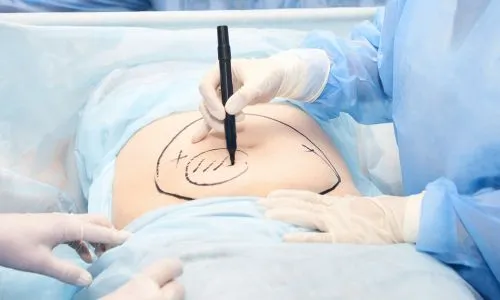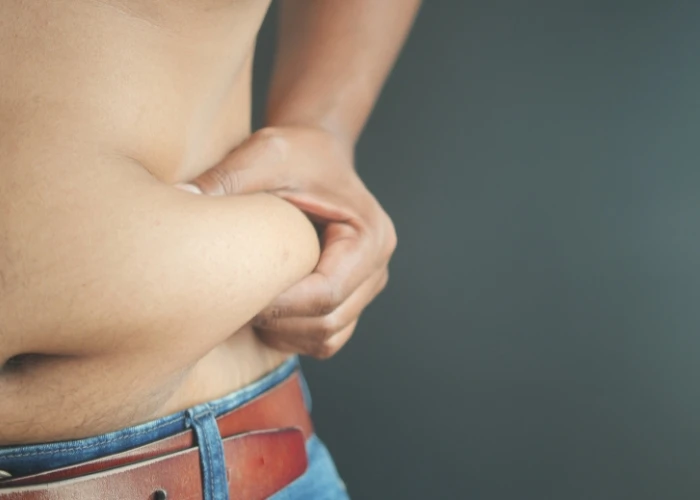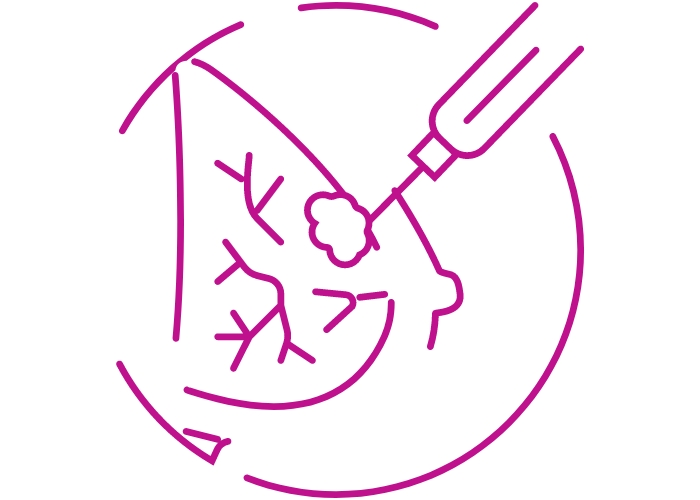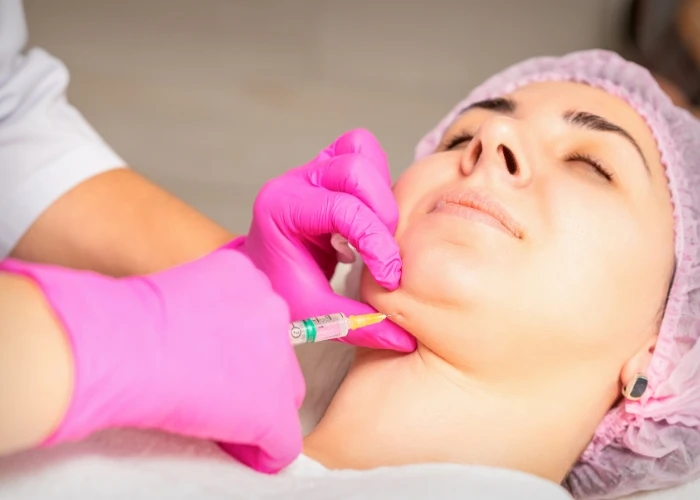Sinusitis - Top Sinus Precautions You Need To Know in 2024
Sinus problems can cause lot of discomfort and other inconveniences that affects you daily routine. The headache, the face ache, pain in nose & eyes leads to a hectic day. You will not be able to focus on your work. In worst cases, you will have to take a complete bedrest. Taking the right precautions can help you reduce the severity of these issues & helps in improving your daily routine. In this detailed & comprehensive blog post about Sinus Precautions, you will get all the precautions in one place, from dietary measures to post sinusitis surgery care. So, let’s get started with some brief overview on Sinusitis.
What is Sinusitis & what are its causes?
Sinusitis or Sinus Infection is an inflammation or swelling of tissues which are inside the nose and lie on the lining of sinus. The common symptoms of Sinus infection includes runny nose, face pain, congestion in nose and sometimes pain in the Eyes.

Causes of Sinus Infection
Sinusitis is caused when Sinus areas gets blocked and gets filled with fluid. The pathogens do not see an exit door from Nose & hence gets stuck nasal area and leads to infection. Below are some causes of Sinusitis –
- Food Causes Sinus Problems: Certain foods, such as dairy products, refined sugars, and processed foods, can trigger sinus problems by increasing mucus production and inflammation
- Sure Sign of Sinus Infection: Persistent symptoms like nasal congestion, thick nasal discharge, facial pain or pressure, and reduced sense of smell are sure signs of a sinus infection
- Nutrient Deficiency: A deficiency in certain nutrients, such as vitamin D, can weaken the immune system and make you more susceptible to sinus infections
How Vitamin D deficiency can cause Sinusitis?
Vitamin D (or D3) is an anti inflammatory hormone. The direct sunlight helps our body to create Vitamin D which is not active by default.
The deficiency of Vitamin D3 is increasing day by day as people are sitting indoor with prolonged usage of electronic devices, busy office schedules and also due to use of sunscreen lotions.
As per this research conducted at Medical university of South Carolina, adults & pediatrics with Vitamin D3 deficiency are more prone to infections & other diseases more than others. The research found that there is a relation between HSNF (Human Sinonasal Fibrolast) & the level of Vitamin D3 in the body.
Here are the main conclusions from this research about Vitamin D3 & Sinusitis:
- Vitamin D3 is associated with HSNF spread in Nose.
- There is an inverse relation between Vitamin D3 level & HSNF proliferation. Meaning, lower is D3, higher is the HSNF leading to more nasal congestion.
So, it is scientifically evident that Vitamin D3 is very important measure to combat Nasal infection specially Sinusitis.
Sinus Symptoms & General Precautions
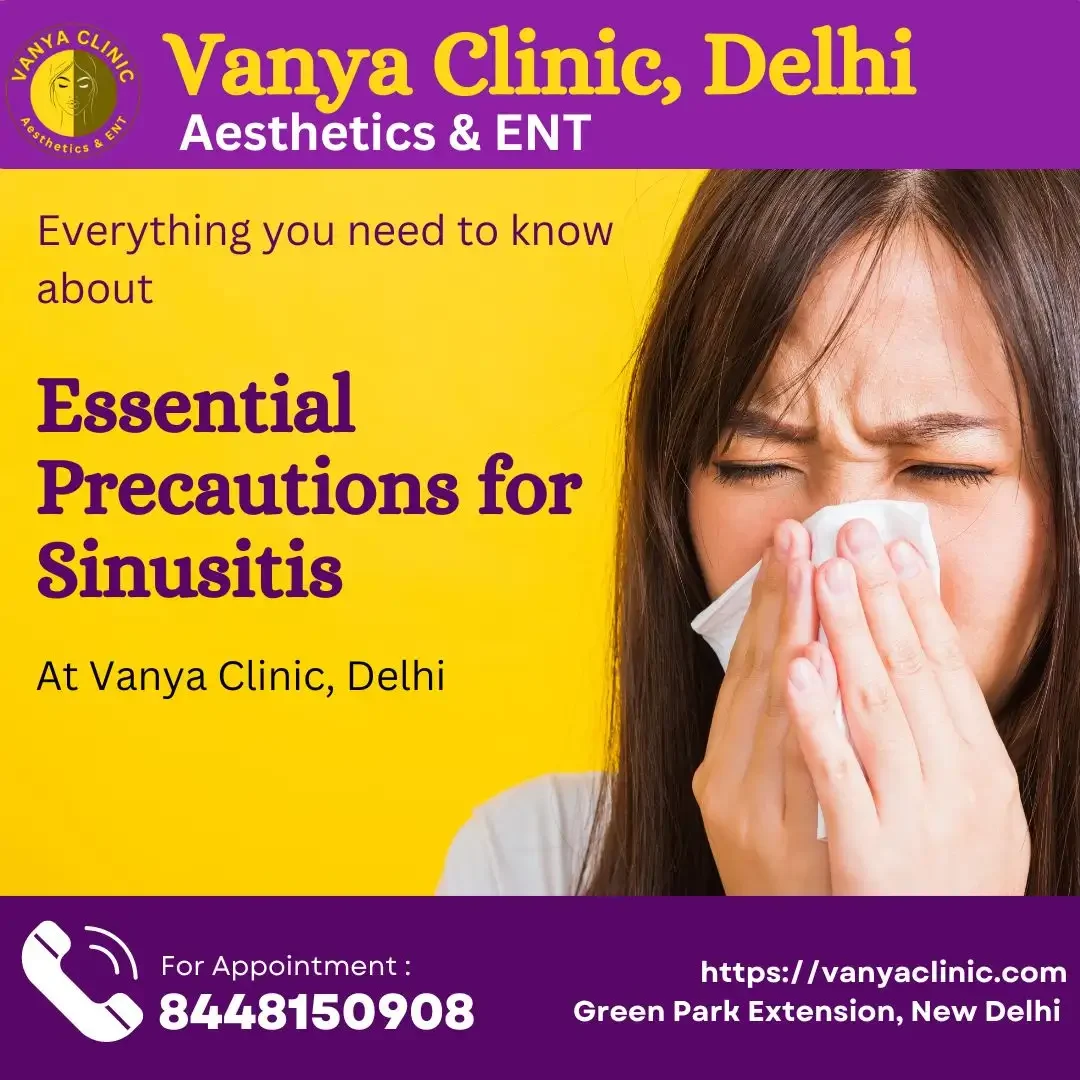
There are variety of symptoms for detecting sinusitis. Here’s a comprehensive list of Sinus Infection symptoms –
Nasal Congestion: Persistent stuffiness or a blocked nose
Facial Pain/Pressure: Pain or pressure around the eyes, forehead, or cheeks
Thick Nasal Discharge: Yellow or green mucus that may drain from the nose or down the back of the throat
Reduced Sense of Smell: Difficulty smelling or tasting
Headache: Pain or pressure that worsens when bending over or lying down
Cough: A persistent cough, often worse at night
How to Check Sinus at Home?
Gently press on the areas around your eyes, nose, and forehead. If you feel tenderness or pain, it may indicate sinusitis.
How to Confirm Sinusitis?
ENT Specialist Consultation: An ENT (Ear, Nose, Throat) specialist can confirm sinusitis through a physical examination and possibly imaging tests like a CT scan
First Sign of Sinus: Early signs include nasal congestion and facial pressure
What Age Sinus Starts: Sinusitis can occur at any age but is more common in adults
General Precautions for Managing Sinus Issues
- Stay Hydrated: Drink plenty of fluids to thin mucus
- Humidify Your Air: Use a humidifier to keep your nasal passages moist
- Avoid Allergens: Stay away from known allergens and irritants
- Practice Good Hygiene: Wash your hands frequently to prevent infections
- Use Saline Sprays: Rinse your nasal passages with saline sprays to keep them clear
- Rest: Ensure you get enough rest to help your body fight off infections
Precautions for Specific Sinus Conditions
1. Precautions for Sinus Headache
Dairy products can increase mucus production, which may worsen sinus congestion and headaches.
Try to limit or avoid milk, cheese, and yogurt if you notice they trigger your sinus issues.
- Spicy Foods: Foods like chili peppers, horseradish, and wasabi can help clear nasal passages and reduce sinus pressure
- Ginger & Garlic: Both have anti-inflammatory properties that can help reduce sinus swelling and pain
- Fruits and Vegetables: High in vitamins and antioxidants, they can boost your immune system and help fight off infections. Oranges, strawberries, and leafy greens are particularly beneficial
- Warm Liquids: Herbal teas, broths, and warm water with lemon can soothe your throat and help keep mucus thin
2. Precautions for Orbital Fracture
Managing an orbital fracture, especially one involving the sinuses, requires specific care and precautions to ensure proper healing and prevent complications.
- Elevate Your Head: When sleeping, keep your head elevated using pillows. This helps reduce swelling and pressure around the eyes and sinuses
- Avoid Pressure on the Affected Side: Try to sleep on your back or the side opposite to the fracture to avoid putting pressure on the injured area
- Avoid Blowing Your Nose: Blowing your nose can increase pressure in the sinuses and worsen the fracture or displace bone fragments. Instead, gently dab your nose with tissue if necessary
- Prevent Sneezing with Mouth Closed: If you need to sneeze, keep your mouth open to reduce pressure on the sinuses and orbital area
- Immediate Care: If you suspect an orbital fracture, seek immediate medical attention. Do not attempt to treat the injury on your own
- Protect the Eye: Avoid touching or pressing on the injured eye. If necessary, cover it lightly with a clean, dry cloth until medical help is available
Dietary Precautions for Sinusitis
Foods to Eat
- Anti-Inflammatory Foods: Incorporate foods like leafy greens, berries, nuts, and fatty fish (such as salmon) that are high in omega-3 fatty acids
- Warm Soups and Broths: These can help soothe sinus passages and provide hydration
- Spices and Herbs: Ginger, garlic, and turmeric have anti-inflammatory properties and can help clear sinus congestion
Foods to Avoid

- Dairy Products: Milk, cheese, and yogurt can increase mucus production, exacerbating sinus congestion
- Sugary Foods: High sugar intake can lead to inflammation and weaken the immune system
- Processed Foods: Avoid foods high in preservatives and artificial ingredients, which can increase inflammation
Fruits to Eat
- Citrus Fruits: Oranges, lemons, and grapefruits are rich in vitamin C, which can boost the immune system
- Berries: Blueberries, strawberries, and raspberries are high in antioxidants and can help reduce inflammation
- Pineapple: Contains bromelain, an enzyme that can help reduce mucus and inflammation
Drinks to Avoid
- Alcohol: Can cause dehydration and increase sinus pressure
- Caffeinated Beverages: Coffee and some teas can lead to dehydration
- Sugary Drinks: Soda and sweetened beverages can increase inflammation and mucus production
People with Diabetes
- Monitor Carbohydrates: Opt for low-glycemic foods to keep blood sugar levels stable.
- Include Lean Proteins: Chicken, fish, and legumes can help maintain balanced nutrition without spiking blood sugar
- Vegetables: Non-starchy vegetables like spinach, broccoli, and peppers are good choices
Balanced Meal
- Include All Food Groups: Ensure your meals have a balance of proteins, healthy fats, and carbohydrates
- Hydration: Drink plenty of water throughout the day to keep mucus thin and prevent dehydration
- Small, Frequent Meals: Eating smaller meals more frequently can help maintain energy levels and prevent overeating
References
About Author - Dr. Purodha Prasad


